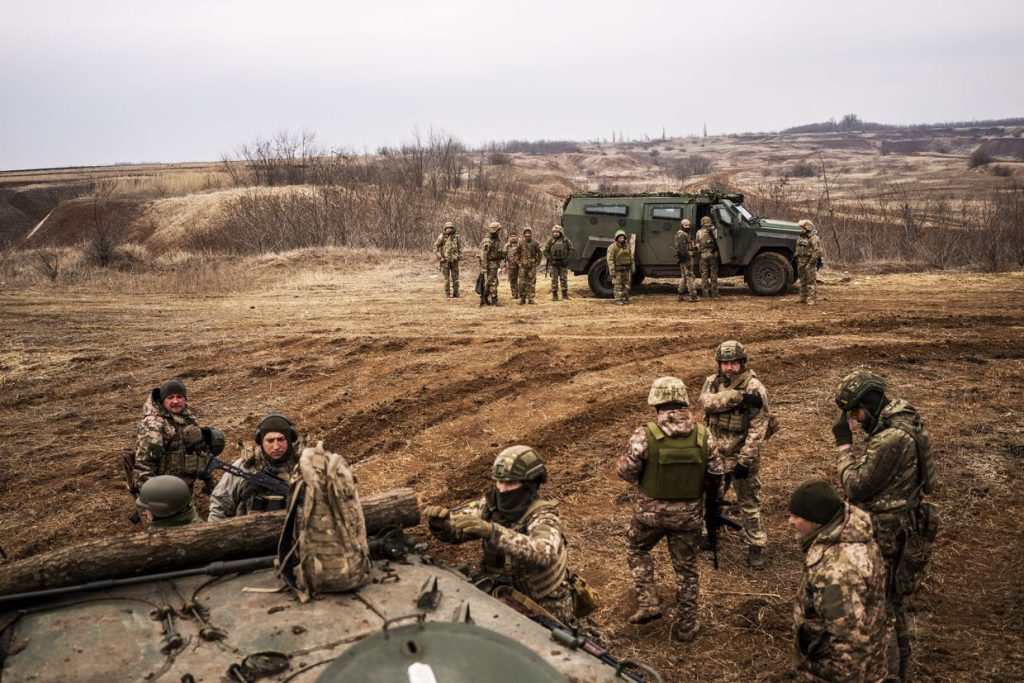The General Staff of Ukraine’s Armed Forces reported that Russia has lost 782,510 troops in Ukraine since the full-scale invasion began on Feb. 24, 2022. This number includes 1,650 casualties suffered by Russian forces in just one day. In addition to troops, Russia has also lost significant military equipment, including 9,644 tanks, 19,951 armored fighting vehicles, 32,262 vehicles and fuel tanks, 21,379 artillery systems, and more. The losses also extend to air defense systems, aircraft, drones, ships, and submarines. These figures highlight the significant toll of the conflict on the Russian military.
In response to tensions with Russia, Moldova has approved a 10-year defense strategy aimed at increasing defense spending to 1% of the country’s gross domestic product (GDP) by 2030. The strategy signals Moldova’s commitment to enhancing its defense capabilities in the face of potential threats. With Russia’s military involvement in neighboring Ukraine causing concern, Moldova’s decision to bolster its defenses reflects the broader regional security challenges posed by Russia’s actions.
The conflict in Ukraine has not only resulted in significant military losses for Russia but has also raised concerns about the impact on the broader geopolitical landscape. The invasion has drawn condemnation from the international community, with many countries imposing sanctions on Russia in response. The ongoing conflict has also sparked debates about the role of NATO and the West in supporting Ukraine and deterring Russian aggression. The situation in Ukraine has highlighted the complex and evolving nature of global security challenges in the 21st century.
The losses suffered by Russia in Ukraine underscore the high human cost of war and the challenges faced by conflict-stricken populations. The conflict has resulted in civilian casualties, displacement, and humanitarian crises, further exacerbating the already dire situation in Ukraine. The need for humanitarian assistance and protection of civilian populations remains a critical priority in the midst of the ongoing conflict. The international community has a responsibility to address the humanitarian needs of those affected by the conflict and to work towards a peaceful resolution.
The defense strategy approved by Moldova reflects a broader trend of countries in the region taking steps to strengthen their defenses in response to heightened security concerns. The evolving security landscape in Eastern Europe and the Black Sea region has prompted countries to reassess their defense priorities and capabilities. The ongoing conflict in Ukraine has served as a wake-up call for many countries in the region, prompting them to invest in their defense infrastructure and capabilities to better protect their sovereignty and national interests. Moldova’s decision to increase defense spending is part of a broader effort to enhance its security posture in a volatile regional environment.
As the conflict in Ukraine continues to unfold and the toll on Russian forces mounts, the international community faces the challenge of finding a diplomatic solution to end the violence and restore stability in the region. Efforts to de-escalate the conflict and negotiate a peaceful resolution are essential to prevent further bloodshed and suffering. The conflict in Ukraine serves as a stark reminder of the consequences of military aggression and the importance of diplomacy in resolving conflicts. It also highlights the need for stronger international cooperation and mechanisms to promote peace and security in the face of evolving security threats.


